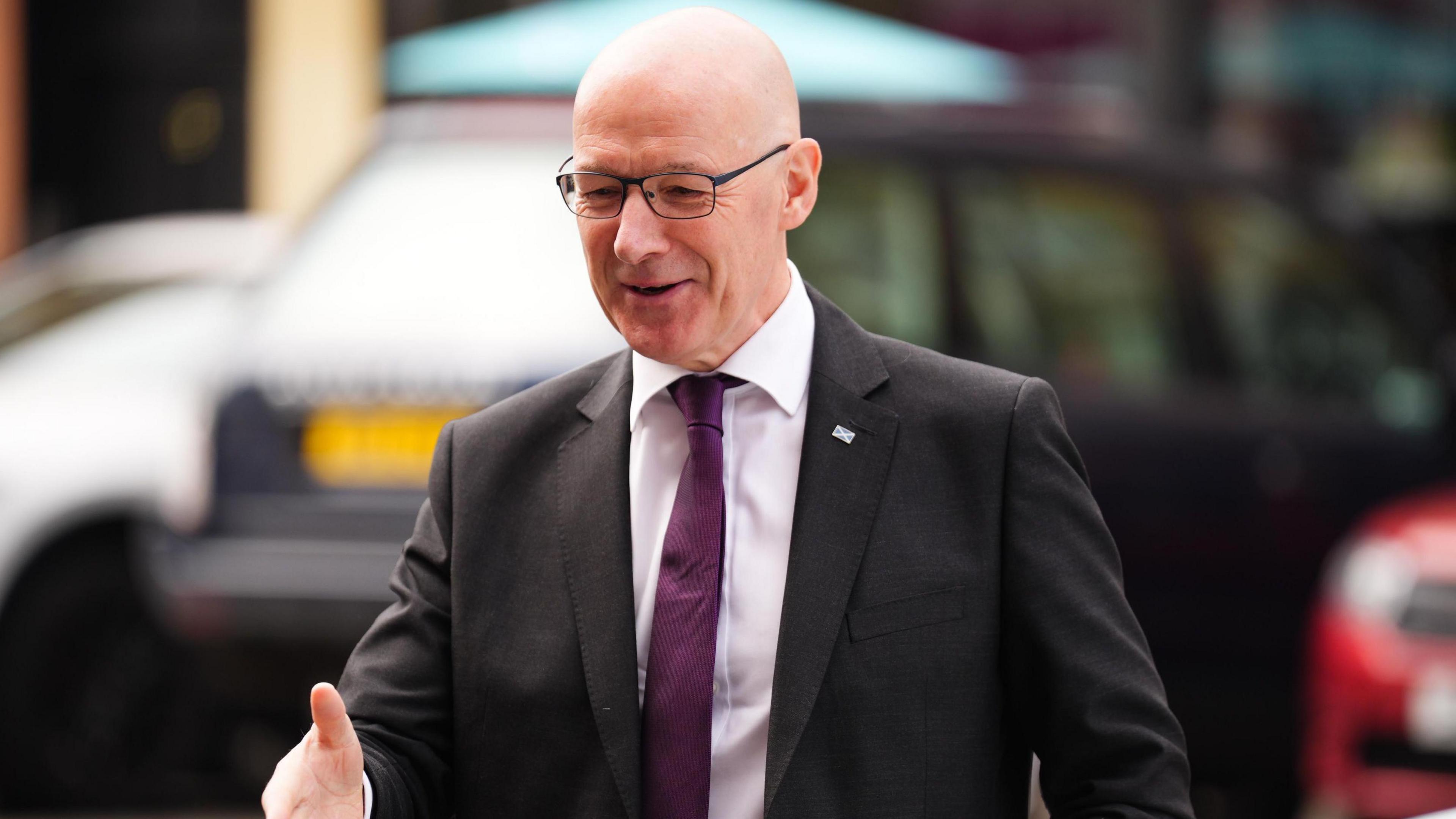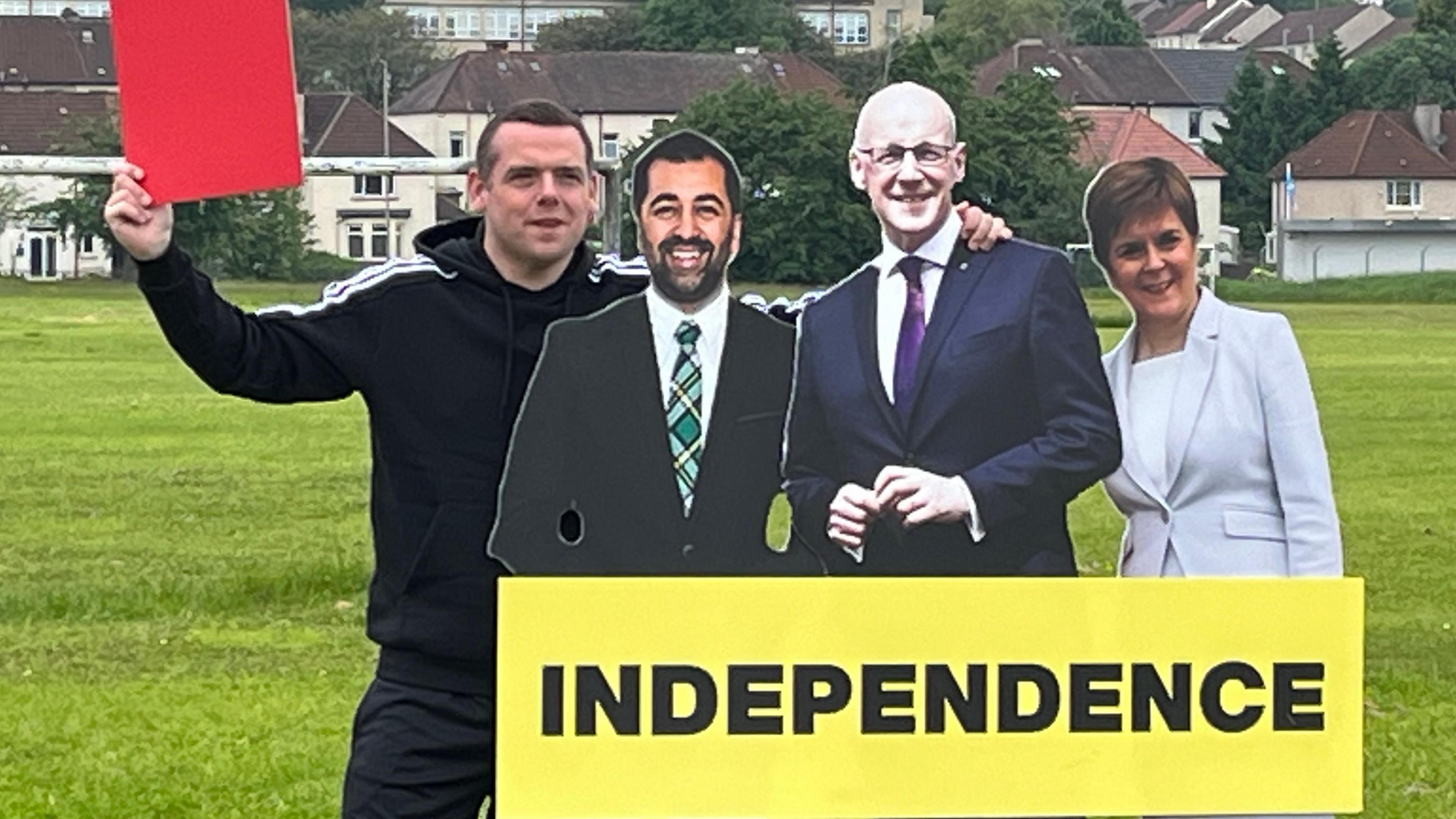John Swinney calls on Labour to commit to emergency budget

John Swinney called on Labour leader Sir Keir Starmer to commit to an emergency budget
- Published
Scotland's first minister John Swinney has called on Sir Keir Starmer to commit to an emergency budget if Labour win the general election.
During a speech in Glasgow, the SNP leader said there was a broad consensus to "get rid of the Tories", but voiced concerns about who would replace them.
He added Scottish voters were likely to be in "disappointed" in the alternative being offered by the Labour party.
Mr Swinney also reaffirmed his party's commitment to eradicating child poverty and stimulating economic growth.
He was speaking after Labour leader Sir Keir urged Scottish voters to use the election on 4 July to "stop the chaos".
Speaking at a campaign event in Inverclyde, the Labour leader said the election was "chance for change, to end the chaos of division, to turn the page and to rebuild Scotland and rebuild Britain, because we have to stop the chaos".
Meanwhile, Scottish Conservative leader Douglas Ross - a football referee - said he wanted voters to show Mr Swinney the "red card".
The Scottish Conservatives are focusing their efforts on the seats in Scotland which they won in 2019, and those where they came second to the SNP.
Scottish Liberal Democrat leader Alex Cole-Hamilton pledged that his party would continue to be "strong champions" for the pensions triple lock.

Scottish Conservative leader Douglas Ross says he wants to show the SNP the "red card" in the election
Mr Swinney said the election was a choice between the SNP, who he said would fight to protect the interests of Scottish people, or Labour who would “take their orders from a London-based prime minister”.
The first minister said said: "On austerity the Labour party has made it clear that there will be no increases in income tax, no increases in corporation tax, no increases in national insurance, no increases in VAT.
"They've signed up to the tight fiscal limits of the Tories, they’ve signed up to tight borrowing that is austerity on steroids from the Labour party."
He called on Labour leader Sir Keir to commit to delivering an emergency budget “very swiftly” should he be elected prime minister.

Prior to the speech, the SNP leader spent the morning in the Glasgow south constituency, meeting the owners of Merry-Go-Round - a charity shop for baby clothes and toys, focused on helping families save money.
He accused the Conservatives of delivering 14 years of austerity in Scotland, which he claimed had "inflicted hardship" on people in communities like those in Glasgow.
The first minister said people across Scotland have had to "wrestle" with challenges of hyper inflation and rising prices for food and energy as a "consequence of Westminster mismanagement".
'Bodyblow' to Scottish jobs
Mr Swinney also responded to Labour's plans to create a publicly-owned renewable energy company.
He warned the plans for a GB Energy company would be a "bodyblow" to the Scottish economy".
He added the plans would not reduce household bills "any time soon", but "will reduce employment" in the north east of Scotland.
Great British Energy would be headquartered in Scotland, where much of the UK's oil and gas and offshore wind industries are based.
Sir Keir Starmer has said the move would bring a "huge number" of skilled jobs to Scotland.
The Scottish Conservatives have accused Labour of wanting to "turn off the taps in the North Sea" which they said would destroy tens of thousands of jobs and devastate communities across the North East.
The party said it was "economically and environmentally illiterate of Labour and the SNP to turn their back on oil and gas because it would leave us reliant on importing more expensive fossil fuels with a bigger carbon footprint.
“We all want to see a managed transition to net zero, but oil and gas will have a crucial role to play in our energy mix for decades to come because currently there are not sufficient renewable sources to meet our needs".